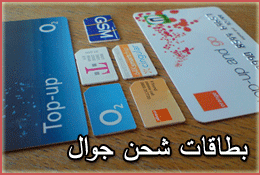Intermediate - Top up card

When you buy a mobile top up card for an Arabic telecoms company, you would probably like to understand the instructions that usually come on the back. Today we go through the vocabulary of such instructions.

